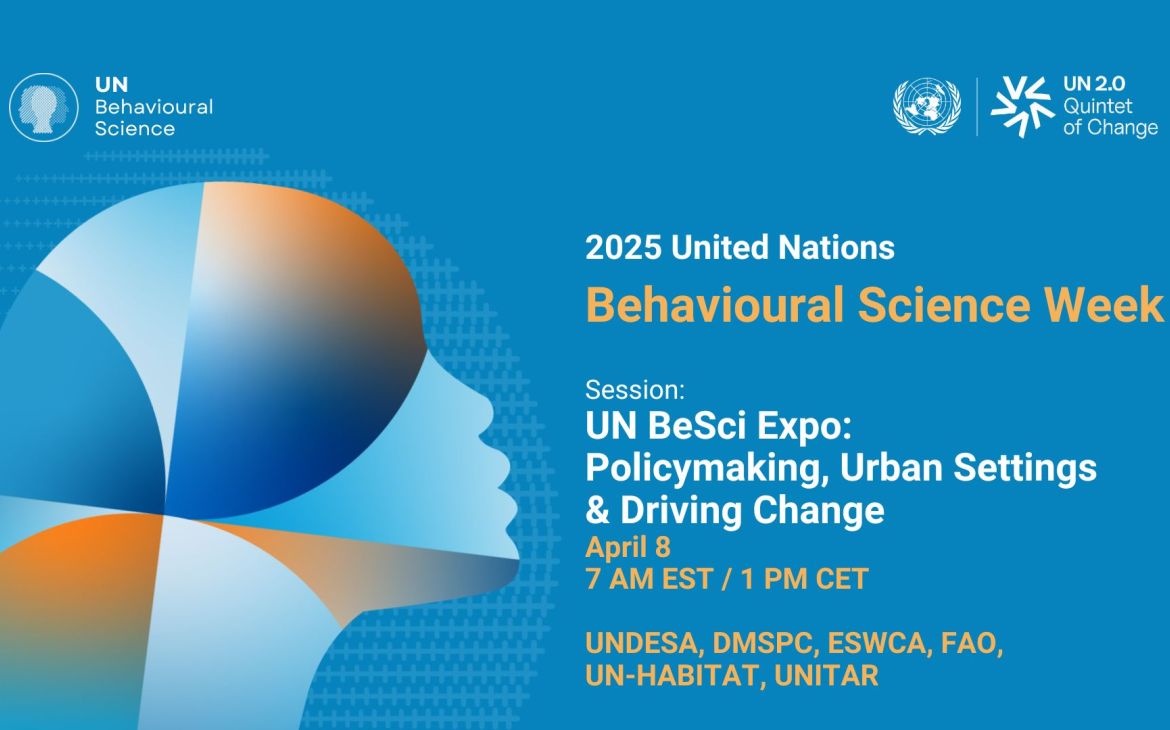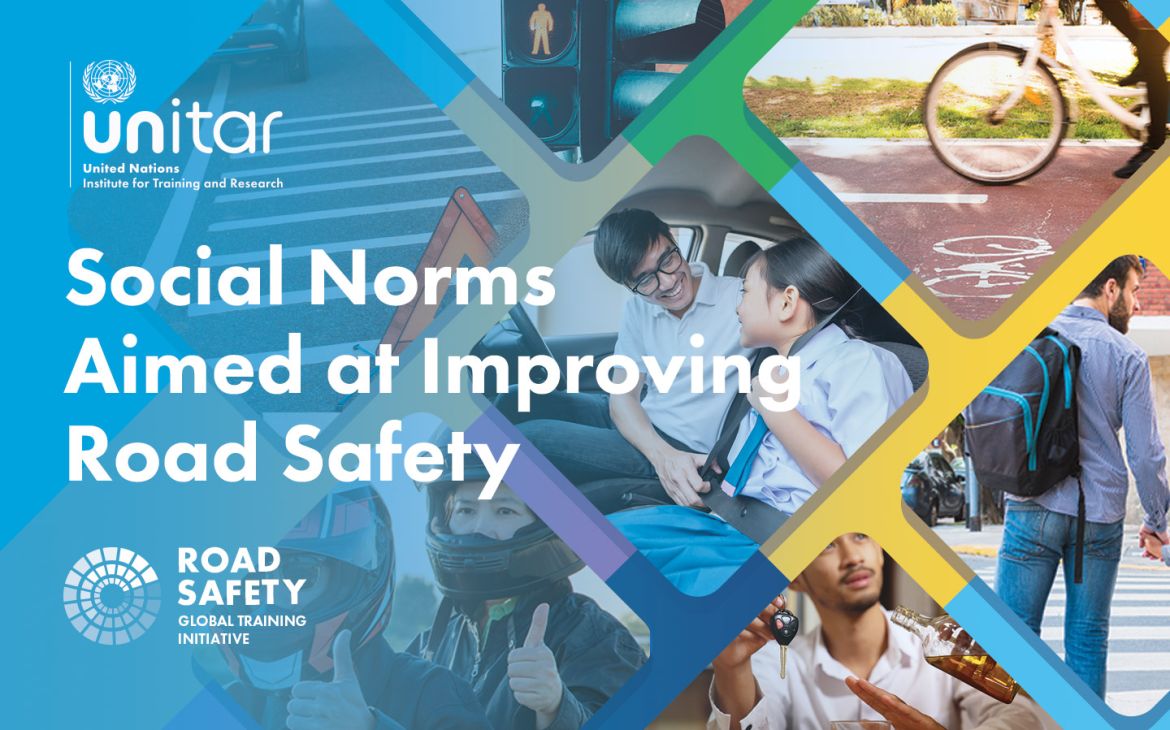28 March 2025 Geneva, Switzerland – As a member of the United Nations Behavioural Science Group, UNITAR is joining 46 UN entities in presenting their innovative behavioural science initiatives to foster collaboration and knowledge exchange on advancing SDGs during the 7th Annual UN BeSci Week from April 7th to 11th, 2025.
The UN BeSci Week is a platform that brings together key stakeholders from UN agencies, academia, government, and global practitioners with opportunities to attend virtual events and exchange experiences on integrating behavioral science in their respective fields.
The SDGs rely on collective efforts to change behavior and accelerate progress. The UN recognizes behavioural science as one of the cross-cutting enablers to bridge divides and expand stakeholder participation in sustainable development. Behavioural science applications have gained global momentum, catalyzing new joint initiatives and cross-sector collaboration among UN entities.
The upcoming conference explores critical intersections of behavioral science and evidence-based decision-making in UN operations and practical applications across health, AI, community resilience, and urban settings. Each of the initiatives contributes to the UN Secretary-General's vision of UN 2.0 to implement a forward-thinking culture to enhance the UN system with five cutting-edge skills of the 21st century. The conference aims to showcase UN system-wide efforts to integrate behavioral science insights in driving progress towards the SDGs.
UNITAR is proud to present UNITAR-Behavioral Science Insights from Road Safety, featuring its training toolkit ‘Social Norms Aimed at Improving Road Safety: Designing Effective Behavior Change Campaigns. ’
Road safety interventions can apply behavioral science principles of social norms, a scientific method to influence individual behavior and impact community resilience. Research shows that social norms may function as rules for accepted, appropriate and obligatory actions within a group. Therefore, understanding how social norms act as powerful constraints on individuals’ attitudes and behaviors is crucial for effective policy interventions.
In the context of road safety, changing road-users' behaviour on risk factors for road traffic injuries such as speeding, drinking and driving, and failure to use helmets, seat belts, and child restraints are essential to reduce fatalities and injuries from road traffic crashes. In response, UNITAR provides a series of courses and a digital tool kit for government officials and for those responsible for road safety policies and interventions to design effective behaviour change campaigns by promoting positive social norms aimed at improving road safety.
The toolkit provides a comprehensive overview of social norms and applications in road safety with the following learning objectives:
- Introduce social norms and their role in creating new and perpetuating beneficial norms affecting road safety and eliminating harmful ones.
- Outline examples of interventions such as road safety campaigns which seek to alter social norms in support of road safety
- Offer a guide on how to design effective communication campaigns aimed at altering road users’ behaviours



